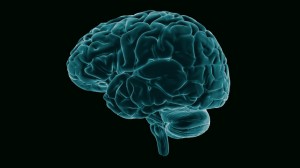OXFORD, Miss. – Concussions and other head injuries, including those suffered by football players and military personnel in combat, have attracted widespread attention in recent years. To help address these problems, the University of Mississippi’s School of Education has launched a new Ph.D. program with a neuroscience component.
One of only three programs of its kind in the nation, the UM curriculum is designed to train professionals to help those with traumatic brain injuries recover better. The new special education doctoral program trains educators to use therapies that incorporate mathematics, language and other subjects to speed and improve recovery.
The new special education Ph.D. has multiple components: one helps students learn how the brain works, while other sections of the curriculum deal with literacy, diversity and behaviors. Neurosciences are studied in all areas of the new program.
“We’re going to be able to really draw a lot of students nationally because of the Ph.D. with the neuroscience component,” said Roy J. Thurston, UM assistant professor of special education. “Some other universities have master’s degrees in neuroscience, but the only other doctorates I know of are at the University of Illinois at Urbana-Champaign and Harvard University.”
Chancellor Dan Jones, who is a medical doctor, has been a leader in the movement to understand and prevent concussions in sports. In 2012, he was appointed to chair a Southeastern Conference working group on concussions. He said he is happy that the university’s faculty is engaged in addressing the issue through the new program.
“I am pleased that our faculty are providing leadership in the field of education, especially in the area of educating those with traumatic brain injury,” Jones said. “This is another great example of University of Mississippi faculty seeking opportunities to transform lives through education and service.”
Thurston set up the UM program. His research is in cognitive rehabilitation of those with traumatic brain injuries and also in neuroscience applications to education. He previously worked in Canada in a hospital setting and tested patients with brain injuries, including looking at how they performed in math, language and other subjects. Those tests and therapies helped patients exercise their brains, which sped up their recovery.
The hospital where Thurston worked had classrooms, but training isn’t just for students. It’s also applied to help adults who have been injured.
“When people pursue this degree, they can go work not just in K-12 education systems; they can work in rehabilitation and also hospital situations,” Thurston said. “Because there are so many brain injuries now and the survival rate is huge compared to what it used to be, they really need cognitive rehabilitation. We look at how we’re going to get these people back to school, back to competitive employment, get their lives back together.”
The therapies taught in the program could be particularly useful as more emphasis has been placed in recent years on head injuries in college and professional football. Officials have pushed to limit the number of injuries through better helmet technology and rules changes designed to make the game safer. But injuries still occur, and advancements in figuring out how to treat them continue.
Another focus is on war veterans who returned from combat with concussions and other brain injuries.
“These guys who get hurt sometimes have problems with memory and headaches, real behavioral issues,” Thurston said. “Quite often, if they got into a situation where they were able to go back and do some of the stuff that we do in education, that helps the brain heal. It gets back on track faster than if you just did the physical things like occupational and physical therapy. That’s where we’ve been missing the boat.”
The new programs meet a critical education need, said David Rock, UM education dean.
“There is a shortage in P-12 and higher education in this field of education,” Rock said. “Our faculty add the expertise to offer specialties in the field including cognitive neuroscience and brain injuries as it impacts the development and learning of children. There is a critical shortage in the area of special education across the country.
“Adding quality new faculty with expertise in the complexities of the brain and cognitive neuroscience will add to the depth of teaching and learning of our doctoral candidates.”

